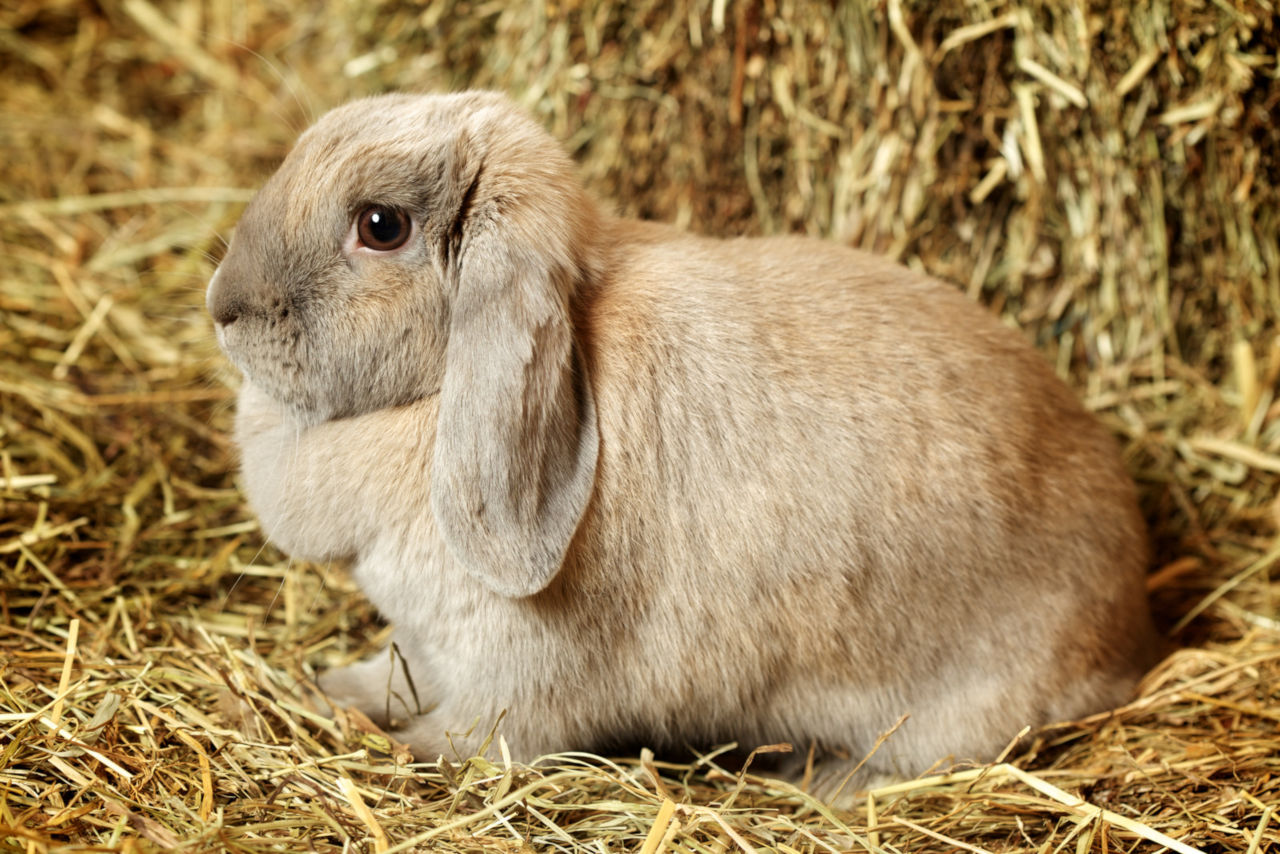As a rabbit owner, you probably know that rabbits have sensitive stomachs, and therefore, you have to pay attention to their diet. Consequently, you may wonder whether or not rabbits can eat a fruit like pineapple.
Adult rabbits can eat pineapple, but only in moderation. This is because pineapples contain a lot of natural sugar and can lead to painful flatulence. It is best to feed your rabbits pineapple as an occasional sweet surprise, as it has lots of nutrients but also tastes like a special treat.
In this article, you can learn more about how fruit, and pineapple in particular, can affect your rabbit’s digestion.
We also reveal what you should include in your rabbit’s daily diet to keep them happy and healthy.
Can Rabbits Eat Pineapple?
Research has shown that there is a guideline you should stick to if you want to feed your rabbits pineapple. And also how much of it is actually good for them without being harmful.
We recommend the following:
- Baby rabbits should never eat pineapple as their digestive system is too sensitive.
- Give an adult rabbit only 5 grams of pineapple, especially if you are just introducing it into the diet.
- Give pineapple only once or twice a week as a special treat.
- You can increase the amount of pineapple up to 15 grams if you are sure it will not cause bloating or diarrhea.
It is important to note that these instructions are for a healthy rabbit.
However, you should first determine if the pineapple has any adverse effects on the rabbit.
How Can You Tell if Pineapple is Harming Your Rabbits?
When you consider where rabbits are found in the wild, the habitat usually contains long grasses and not tropical fruits.
It is, therefore, essential to understand that while pineapple can be a healthy treat, it should not make up the majority of a rabbit’s diet. This also applies to other sugary fruits, such as mangoes.
If you decide to offer your rabbit a little pineapple from time to time, you should monitor your rabbit’s droppings for the next 24 hours after eating the fruit.
If you notice bloating or diarrhea, the exotic fruit is probably not tolerated by the stomach.
You can also tell if a rabbit has gas if you hear a soft gurgling sound coming from its stomach after eating.
As the caretaker of your rabbits, it is your responsibility to notice if the pineapple is causing them discomfort.
Rabbits do not pay as much attention to their diet as humans do. And even if it upsets their stomach, they will continue to eat pineapple if you offer it because it tastes so sweet and delicious.
What Can I Give My Rabbits if They Can’t Tolerate Pineapple?
If you are a good and attentive rabbit owner and have noticed that even a small amount of pineapple does not agree with your rabbit, you do not have to give up sweet treats for your pet.
There are a variety of other fruits and vegetables that you can try. However, we recommend that you always start with tiny amounts.
Monitor the rabbit’s gas and elimination to make sure the food is not causing discomfort.
Here are some popular fruits and vegetables that you can safely give to your rabbits, albeit sometimes only in small quantities:
- Apples
- Bananas
- Celery
- Cucumber
- Carrots
- Pears
- Leafy vegetables
- Pumpkin
- Blueberries
- Cabbage
- Kiwi
- Raspberries
Again, these foods should only be used as special treats and not as the central part of your rabbit’s diet.
As you probably know, their diet consists mainly of pellets, grass, and hay.
It’s also important to know which fruits and vegetables can harm your rabbit. These include, among others: Stone fruit such as plums, peaches, and avocados, as well as onions, potatoes, beans, and mushrooms.
Always find out beforehand if you want to introduce a new food to your rabbits. Not everything suitable for humans is also suitable for rabbits.
What Food Should You Give Rabbits With an Upset Stomach?
You may notice that your rabbits have bloating or diarrhea occasionally, even if you pay close attention to their diet.
If a rabbit is feeling unwell or their droppings are not typical, there are some things you can feed them to combat the problem. Pineapple, however, is not one of them.
As we’ve learned, the sugar in pineapple can aggravate a rabbit’s stomach, which is why it’s not recommended as a remedy for digestive problems.
However, you can feed your rabbit carrot tops, leafy greens, dandelions, and herbs such as mint, parsley, cilantro, or basil to help.
Conclusion: Can Rabbits Eat Pineapple?
Rabbits, like most people, love to eat sugar! If you serve them a fruit plate, they will most likely eat all of it.
Unfortunately, shortly after, they are likely to experience extreme physical discomfort and health issues.
You are the responsible adult in this relationship. It is, therefore, vital that you know what fruits and vegetables your rabbits can and should eat and in what frequency and quantity they are healthy.
Let’s review what we have learned today: Adult rabbits can eat pineapple, but young rabbits cannot!
Initially, it would be best to feed pineapple in minimal quantities of no more than 5 grams.
You can gradually increase the amount to no more than 15 grams if you don’t notice any diarrhea or gurgling gas noises coming from your rabbit’s stomach.
Even if your rabbits don’t seem to have any problems with pineapple, you should only give it once or twice a week as a special treat. Never give pineapple on the same day as other sugary snacks.
Now you know everything you need to know when it comes to feeding pineapple to your rabbits!
Hopefully, you now also know which fruit and vegetables are good for your rabbit, how often to reward them with fresh fruit and vegetables, and how to use them as medicine for stomach upsets.


